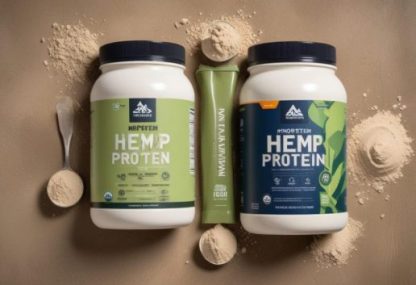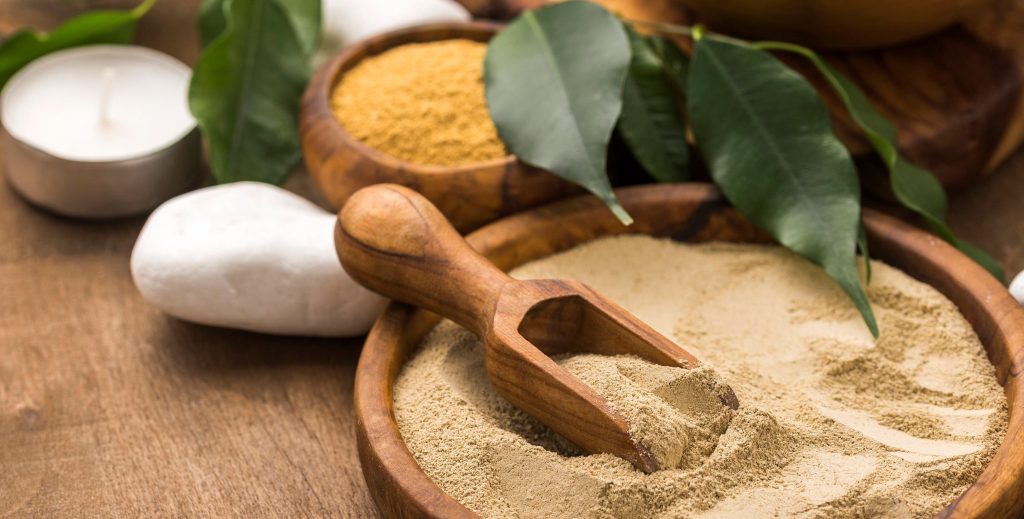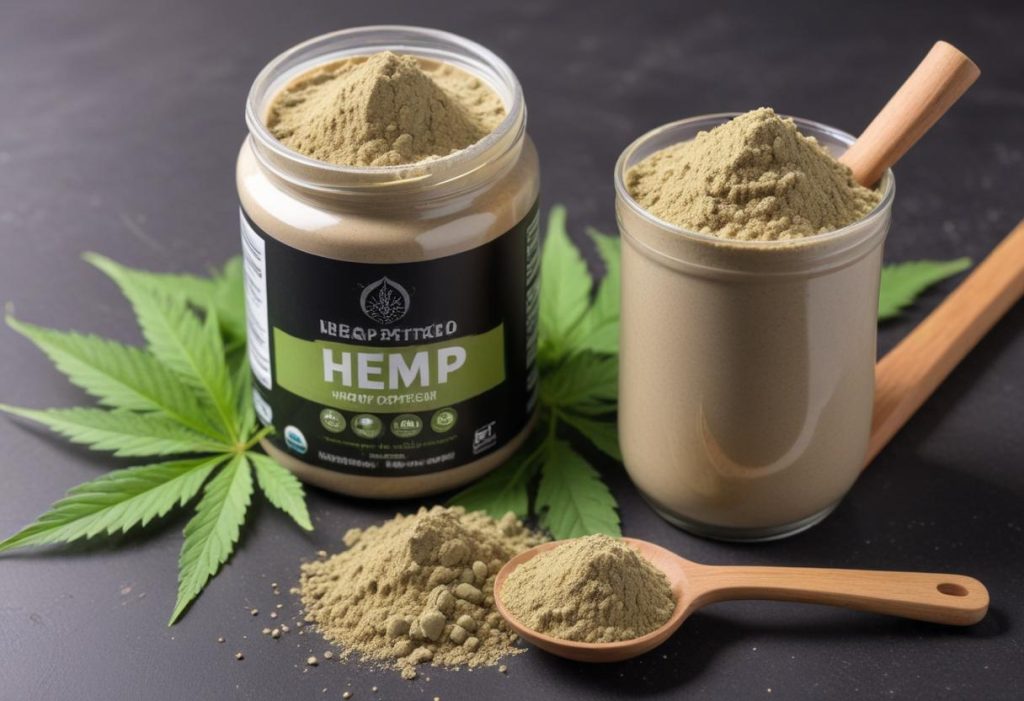
The interest in plant-based diets has surged, driven by growing health consciousness, environmental concerns, and ethical considerations. As more people turn away from animal products, the demand for plant-based protein supplements has risen. Among these, hemp protein powder has garnered attention for its purity and nutritional benefits. Let’s explore the cleanest plant-based protein powder, focusing on why hemp protein powder is often considered the cleanest and most beneficial option.

Cleanest Plant-Based Protein Powder
Understanding Plant-Based Protein Powders
Plant-based protein powders are derived from various plant sources such as peas, rice, soy, hemp, and more. These powders offer a convenient way to supplement protein intake, especially for those who may not get enough from their diet alone. The primary criteria for evaluating the “cleanliness” of a protein powder include its source, processing methods, nutritional profile, and absence of harmful additives.
Common Sources of Plant-Based Protein Powders
- Pea Protein: Derived from yellow peas, pea protein is a popular choice due to its high protein content and digestibility. It is also hypoallergenic, making it suitable for those with food sensitivities.
- Rice Protein: Made from brown rice, this protein powder is easily digestible and hypoallergenic. However, it often lacks a complete amino acid profile, making it less effective for muscle building.
- Soy Protein: Extracted from soybeans, soy protein is a complete protein, meaning it contains all essential amino acids. However, it can be a common allergen and often raises concerns due to potential GMO content and phytoestrogen levels.
- Hemp Protein: Sourced from hemp seeds, hemp protein is rich in essential fatty acids and fiber. It offers a complete amino acid profile and is free from common allergens.
- Other Sources: Protein powders can also be made from chia seeds, pumpkin seeds, sunflower seeds, and more. Each has its unique nutritional benefits and considerations.
Hemp Protein Powder vs Whey: A Comprehensive Comparison 2024 (cbdnep.com)
What Makes a Protein Powder “Clean”?
The concept of “clean” protein powders involves several factors:
- Minimal Processing: The fewer steps involved in processing the protein, the more likely it is to retain its natural nutrients. Cold-pressing and other gentle methods are preferred over high-heat processing.
- Non-GMO and Organic: Organic protein powders free from genetically modified organisms (GMOs) are considered cleaner due to the absence of pesticides and other harmful chemicals.
- No Additives: Clean protein powders should be free from artificial flavors, sweeteners, colors, and preservatives. Natural additives, if used, should be derived from whole food sources.
- Nutritional Integrity: A clean protein powder should provide a good balance of protein, essential fatty acids, fiber, vitamins, and minerals. It should also have a complete amino acid profile.
- Sustainability: Environmentally friendly sourcing and production practices contribute to the cleanliness of a protein powder. This includes sustainable farming practices and minimal environmental impact.
The cleanest Plant-Based Protein Powder meets almost all these factors.

The Case for Hemp Protein Powder
Hemp protein powder stands out among plant-based options for several reasons. Why hemp protein powder is often considered the cleanest and most nutritious choice? Cleanest Plant-Based Protein Powder: Why Hemp Protein Stands Out
1. Nutritional Profile
Hemp protein powder is derived from the hemp plant seeds (Cannabis sativa). It boasts an impressive nutritional profile:
- Complete Protein: Hemp protein contains all nine essential amino acids, making it a complete protein source. This is crucial for muscle repair, immune function, and overall health.
- Essential Fatty Acids: Hemp seeds are rich in omega-3 and omega-6 fatty acids, which are important for heart health, brain function, and inflammation reduction.
- High Fiber Content: Unlike many other protein powders, hemp protein retains a significant amount of fiber, aiding in digestion and promoting a feeling of fullness.
- Vitamins and Minerals: Hemp protein provides essential nutrients such as magnesium, iron, zinc, and B vitamins.
2. Minimal Processing
Hemp protein powder is typically produced through a cold-pressing process that extracts the oil from the hemp seeds, followed by milling the remaining meal into a fine powder. This method preserves the natural nutrients and minimizes the need for additives or chemical processing.
3. Organic and Non-GMO
Many hemp protein powders are certified organic and non-GMO. Hemp plants are generally hardy and pest-resistant, reducing the need for chemical pesticides and fertilizers. This contributes to a cleaner and more environmentally friendly product.
4. Hypoallergenic
Hemp protein is free from common allergens such as soy, dairy, and gluten. This makes it an excellent choice for individuals with food sensitivities or allergies.
5. Sustainability
Hemp is a highly sustainable crop. It requires minimal water, grows quickly, and helps replenish the soil by reducing erosion and returning nutrients. The entire plant can be utilized, making it an eco-friendly choice for protein production.
6. Taste and Versatility
Hemp protein has a mild, nutty flavor that blends well with various foods and beverages. It can be easily incorporated into smoothies, baked goods, and other recipes without overpowering other flavors.
Comparing Hemp Protein to Other Plant-Based Proteins
To understand the cleanest plant-based protein powder and why hemp protein is considered the cleanest, it’s helpful to compare it with other popular plant-based protein powders.
1. Pea Protein vs. Hemp Protein
- Processing: Pea protein often undergoes extensive processing to isolate the protein, which can strip away some nutrients. Hemp protein’s cold-pressing method retains more of its natural goodness.
- Amino Acid Profile: Both are complete proteins, but hemp has a more balanced profile of essential fatty acids.
- Digestibility: Pea protein is highly digestible, but hemp protein’s fiber content supports digestive health.
2. Rice Protein vs. Hemp Protein
- Processing: Rice protein requires enzymatic processing to break down the starches, whereas hemp protein is minimally processed.
- Amino Acid Profile: Rice protein lacks certain essential amino acids, while hemp is complete.
- Fiber Content: Hemp protein has more fiber, aiding in digestion and satiety.
3. Soy Protein vs. Hemp Protein
- Allergens: Soy is a common allergen, whereas hemp is hypoallergenic.
- GMO Concerns: Soy protein often comes from GMO crops, while organic hemp protein is non-GMO.
- Phytoestrogens: Soy contains phytoestrogens, which can affect hormone levels. Hemp does not have this issue.
Choosing the Right Hemp Protein Powder
When selecting a hemp protein powder, consider the following factors to ensure you’re getting the cleanest and most nutritious option:
- Certification: Look for organic and non-GMO certifications to ensure the product is free from harmful chemicals and genetically modified ingredients.
- Ingredients: Check the ingredient list for any additives, sweeteners, or fillers. The best hemp protein powders contain only pure hemp protein.
- Processing Method: Opt for products that use cold-pressing or other minimal processing techniques to preserve nutritional integrity.
- Source: Research the brand and its sourcing practices. Sustainable and ethical sourcing is crucial for a clean product.
- Taste and Texture: Read reviews and try small quantities to find a product with a taste and texture you enjoy.
Incorporating Hemp Protein Powder into Your Diet
Hemp protein powder is versatile and can be used in various ways to boost your protein intake. Here are some ideas:
- Smoothies: Add a scoop of hemp protein powder to your favorite smoothie recipe for a protein-packed start to your day.
- Baked Goods: Incorporate hemp protein powder into muffins, pancakes, and cookies for a nutritious twist on your favorite treats.
- Energy Bars: Make homemade energy bars with hemp protein, nuts, seeds, and dried fruits for a convenient snack.
- Soups and Stews: Stir hemp protein powder into soups and stews to increase their protein content without altering the flavor significantly.
- Yogurt and Oatmeal: Mix hemp protein powder into yogurt or oatmeal for a protein-rich breakfast or snack.

The cleanest plant-based protein powder, hemp protein emerges as a superior choice due to its nutritional profile, minimal processing, hypoallergenic properties, and sustainability. Its complete amino acid profile, essential fatty acids, and high fiber content make it a well-rounded option for those seeking a clean and nutritious protein supplement.
Hemp protein powder’s versatility allows it to be easily incorporated into a variety of recipes, making it a convenient addition to a healthy diet. Whether you’re looking to boost your protein intake, support muscle recovery, or simply enjoy a clean and sustainable protein source, hemp protein powder stands out as a top contender in the plant-based protein market.
Embracing hemp protein not only benefits your health but also supports environmentally friendly practices, contributing to a more sustainable future. As the popularity of the cleanest plant-based protein powder diets continues to grow, hemp protein powder remains a standout choice for those seeking the cleanest and most nutritious option available.
Disclaimer
If you want to read more information about CBD, wellness, Healthcare, and much more related to healthcare, visit –>cbdforhuman (cbdnep.com)
